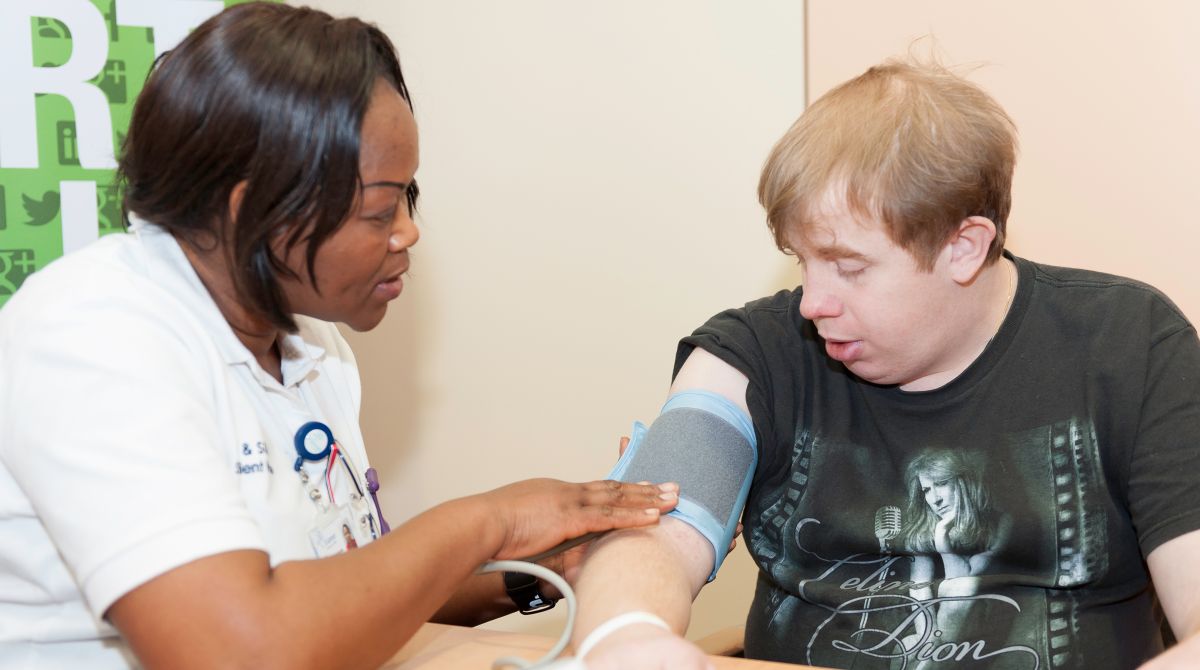Kingston University and St George's, University of London to support project to tackle health inequalities for people with learning disabilities
Posted Thursday 10 June 2021
 Kingston University and St George's, University of London won the bid with Kings College London to lead the NHS England project.
Kingston University and St George's, University of London won the bid with Kings College London to lead the NHS England project.
A new collaboration that will see Kingston University and St George's, University of London team up with King's College London to support the NHS tackle health inequalities for people with learning disabilities and autistic people has been announced by NHS England.
The project will see Kingston and St George's, and Kings College London work closely with the voluntary sector and a core group of six people with learning disabilities to improve the quality of care they receive in response to research showing that on average, people with a learning disability die earlier than the general public.
Kings College London, who will lead the programme, won the bid along with Kingston and St George's to take on NHS England's Learning Disability Mortality Review programme (LeDeR), which reviews deaths of people with learning disabilities, looks at their life and the health and social care services they received.
Kings College London and their partners will look at this information to find areas of learning, opportunities to improve, and examples of excellent practice. This information will then be used to improve services for people living with a learning disability, with an annual report produced for LeDeR from next year.
End of life and palliative care expert at Kingston and St George's Professor Irene Tuffrey-Wijne and Research Assistant Richard Keagan-Bull, who has learning disabilities, will use their skills in co-research and co-production to lead the newly convened Co-Production Partnership, working the Foundation of People with Learning Disabilities, the Estia Centre and Pathways Associates.
At the heart of the partnership is an expert core group of six people with learning disabilities whose role includes identifying areas that need further attention, harnessing the views of other people with learning disabilities on pertinent issues, contributing to the identification of recommendations, and communicating the LeDeR findings to a wider audience including people with learning disabilities.
Professor Tuffrey-Wijne said it's vital that people with learning disabilities are asked for their views so the quality of care for them improves. "LeDeR is a hugely important programme and this collaboration includes partners who have a wide range of academic and quality improvement skills. People with learning disabilities bring a unique perspective to that mix. Including their views is essential if we want to get services right for people with learning disabilities, so I am delighted that we will be able to contribute in this way."
Mr Keagan-Bull said he was encouraged people with learning disabilities were part of the programme. "It is important for people with learning disabilities to be involved in the LeDeR programme. They are at the heart of all this. They need to be listened to, not just to be a number but to be involved and taken seriously. We will be able to help everyone understand how things can be improved."
- Find out more about studying learning disability nursing at Kingston University and St George's, University of London.
- Find out more about NHS England's LeDeR programme.
Contact us
General enquiries:
Journalists only:
- Communications team
Tel: +44 (0)20 8417 3034
Email us



